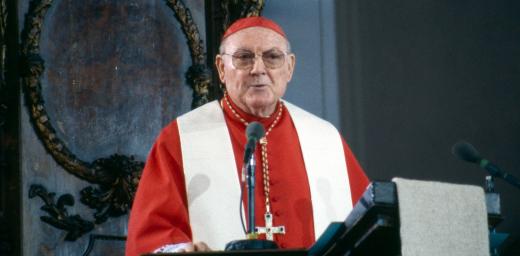Reaffirmed commitment to path from conflict to communion

âWe cannot erase our history of division, but we can make it part of our story of reconciliation,â write the President of the PCPCU, Cardinal Kurt Koch, and the General Secretary of the LWF, Reverend Dr Martin Junge, in a joint foreword to the Italian edition of the JDDJ. Photo: LWF/Albin Hillert
New Italian version of JDDJ on 500th Anniversary of Martin Luther’s Excommunication
The Pontifical Council for Promoting Christian Unity (PCPCU) and the Lutheran World Federation (LWF) are pleased to announce today the publication of the revised Italian translation of the Joint Declaration on the Doctrine of Justification (JDDJ). The release of this version represents an important step for a wider dissemination and continuity in the reception of this historical ecumenical agreement.
By making available this revised Italian translation of the JDDJ together with other texts on the day Catholics and Lutherans recall the 500th anniversary of the excommunication of Martin Luther (3 January), the LWF and the PCPCU reaffirm their commitment to progress together on the path from conflict to communion.
In a joint foreword to the Italian edition of the JDDJ, the President of the PCPCU, Cardinal Kurt Koch, and the General Secretary of the LWF, Reverend Dr Martin Junge, write: “We cannot erase our history of division, but we can make it part of our story of reconciliation”.
The current decade of historical events supported by the LWF and the PCPCU, of which the 500th anniversary of the Augsburg Confession will mark the highpoint in 2030, has been placed under the sign of unity rather than division, with all involved striving to seek “that which is common within the differences, even within the oppositions, and thus work toward overcoming church–dividing differences.” (From Conflict to Communion, §17).





